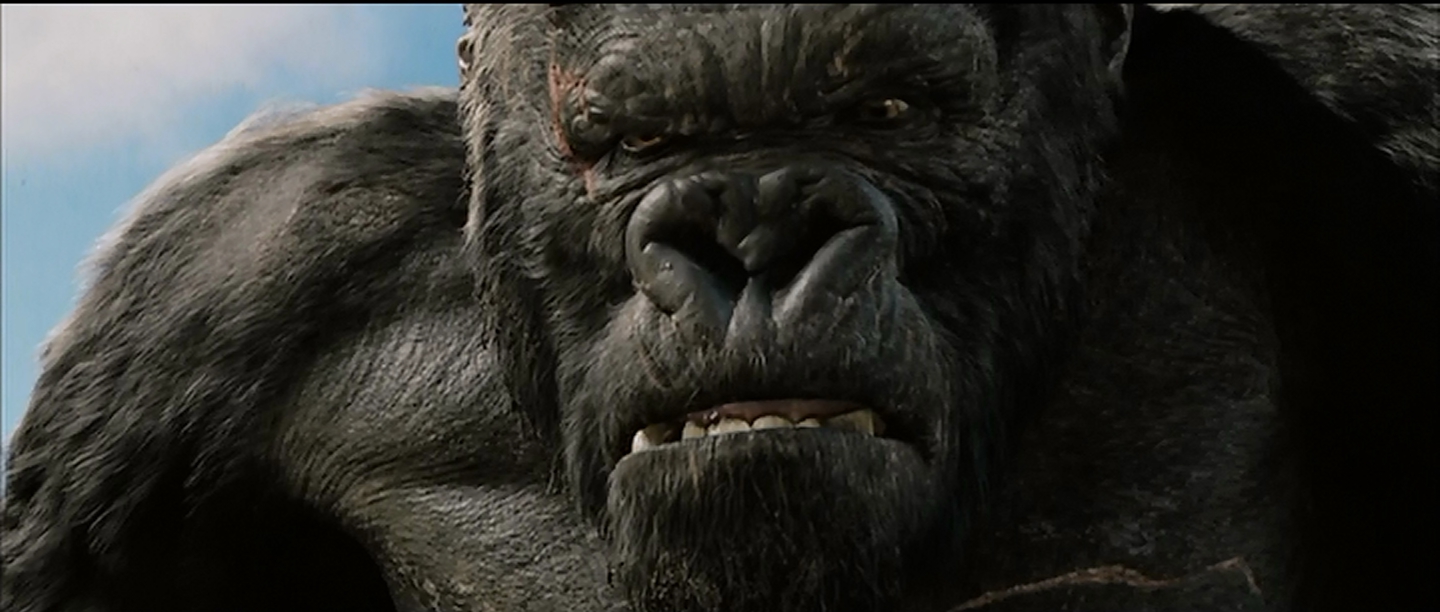
Despite the gorgeous scenery and lush color, the film features more black and white characterization than the original. Carl Denham, played by Jack Black, is a sleazy opportunist, and perfectly in character with the times. Denham was an opportunist in 1933, and the film touches only lightly on his past as a film maker. 1933 Denham is respected, freely given the money for his trip to Skull Island. In 2005, Denham is a maverick, and there are parallels to both Orson Welles and Peter Jackson himself. He rebels against the studio system, lying to his backers, taking what should be a backlot film across the ocean and onto location without permission. Denham literally kidnaps Jack Driscoll, but the film shows his sleaziness and manipulation as a way to success. He gets away with it. When people die around him, Denham says he will donate proceeds to their widows and orphans. But we know him well enough by now to realize that follow-through is unlikely, even if the characters around him don't. Because of Denham, people die, Kong dies, and Ann's heart gets broken.
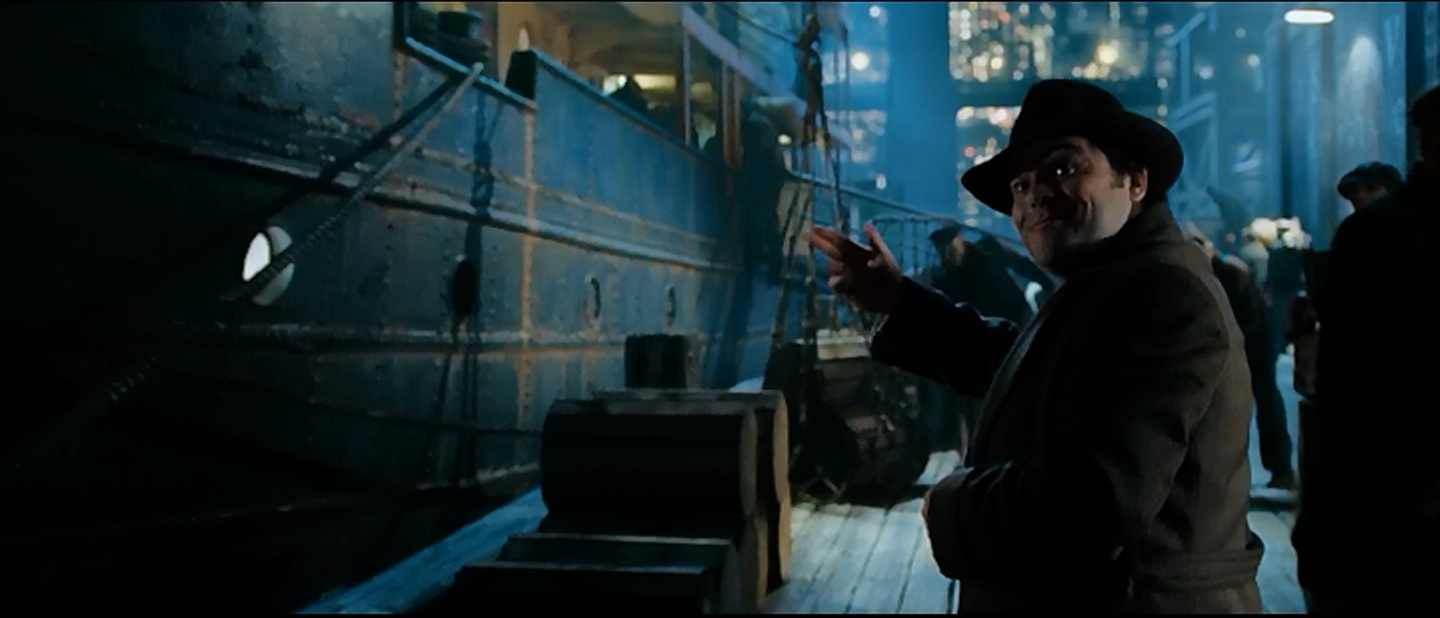
For me, the most sympathetic character, after Kong, is Hayes. Hayes shows kindness and is a father figure to Jimmy. He is brave and cares even for the strangers aboard the Venture. He has back story, he was a soldier, he reads books. He is killed by Kong for his troubles. Denham gets a lot of people killed.
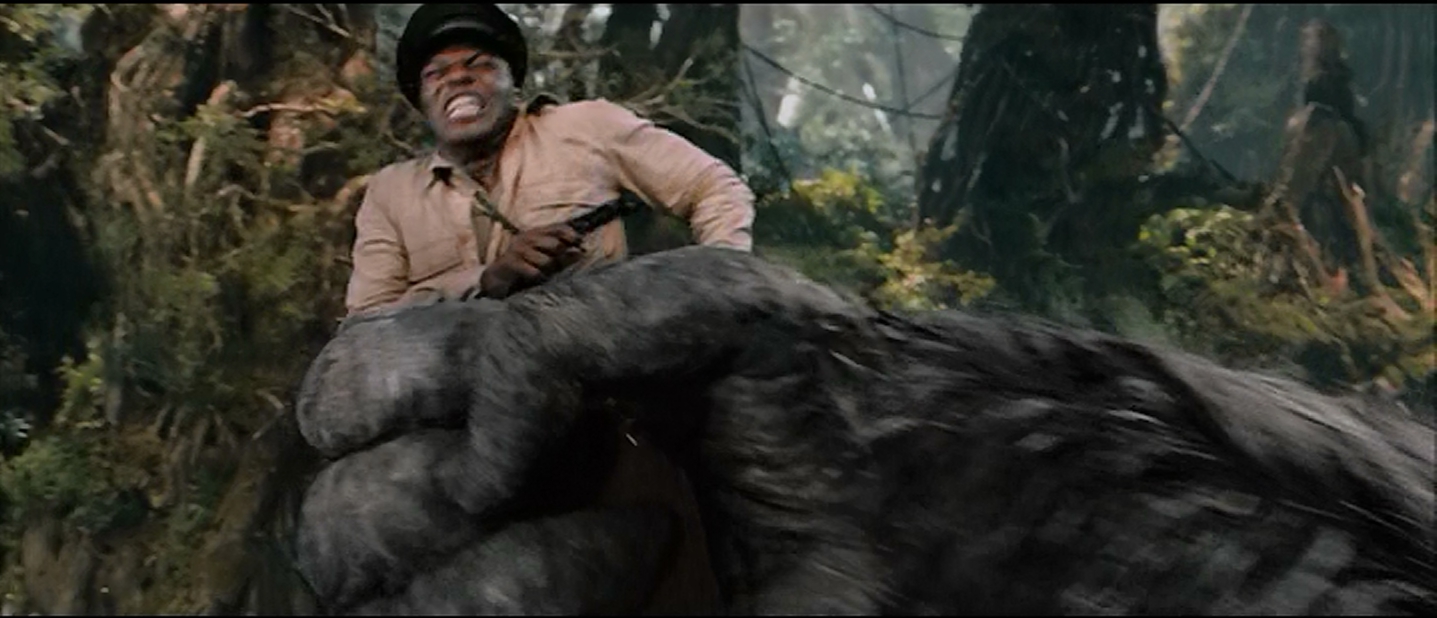
Sympathy for Kong in the 1933 version is entirely the work of effects master Willis O'Brien. Given the script, Kong could have been a rampaging monster, but O'Brien's obsessive devotion to the creature he was animating allows it to project a humanity, show concern, and awareness of its own mortality. These human traits come across more strongly than any of the scripted characters. In his remake, Jackson makes no mistake that Kong is the star of the film, and therein lies its flaw. We know he's going to die. Denham is an exploiter who pulls something unique and magnificent out of its home and hauls it in chains to New York City. And we get more screen time with Denham the jerk. And he gets the last line of the film over the protagonist's dead body.
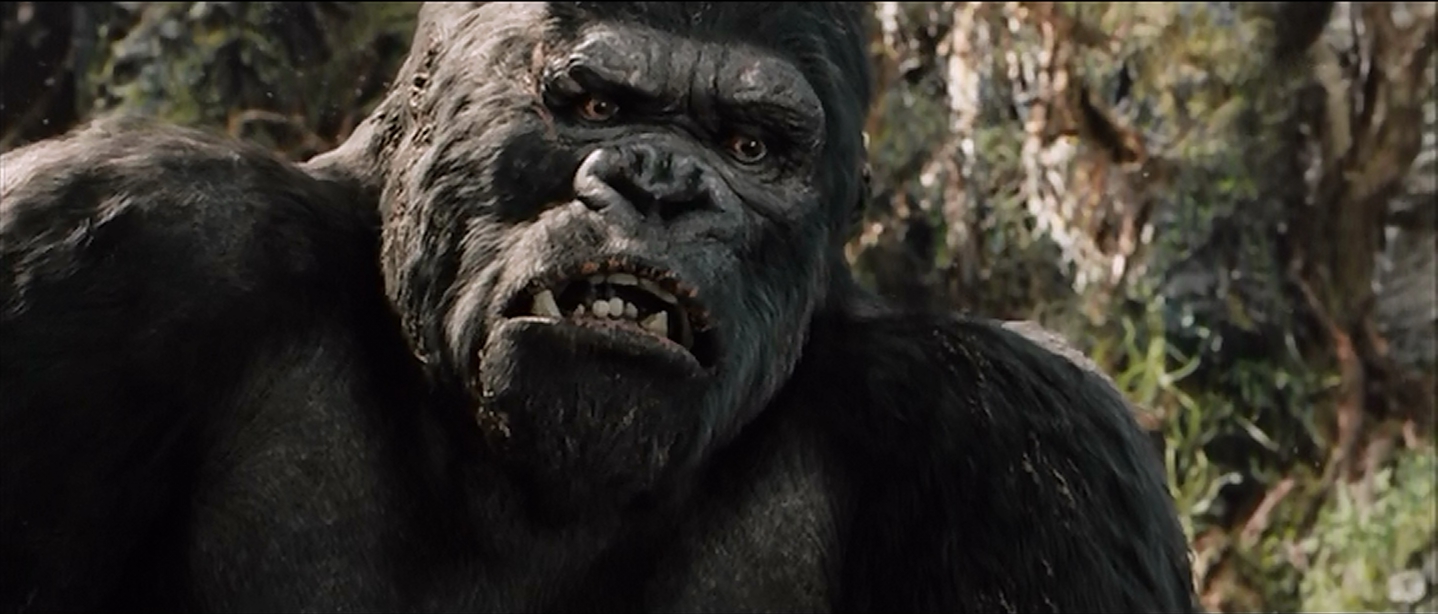
The film does not entirely repudiate the unthinking colonialism of the 33 and 76 versions. The natives of Skull Island are stereotypically African on an island south of Java, primitives from a fallen high society with no indication as to why they have been so reduced. They kill one of the landing party for no perceptable reason other than that they are 'savages'. They crush another man's head with a huge mace, and celebrate afterwards. And of course, they are obsessed with Ann Darrow's blonde good looks. Once they show the explorers where Kong is, they become irrelevant and drop completely out of the film.
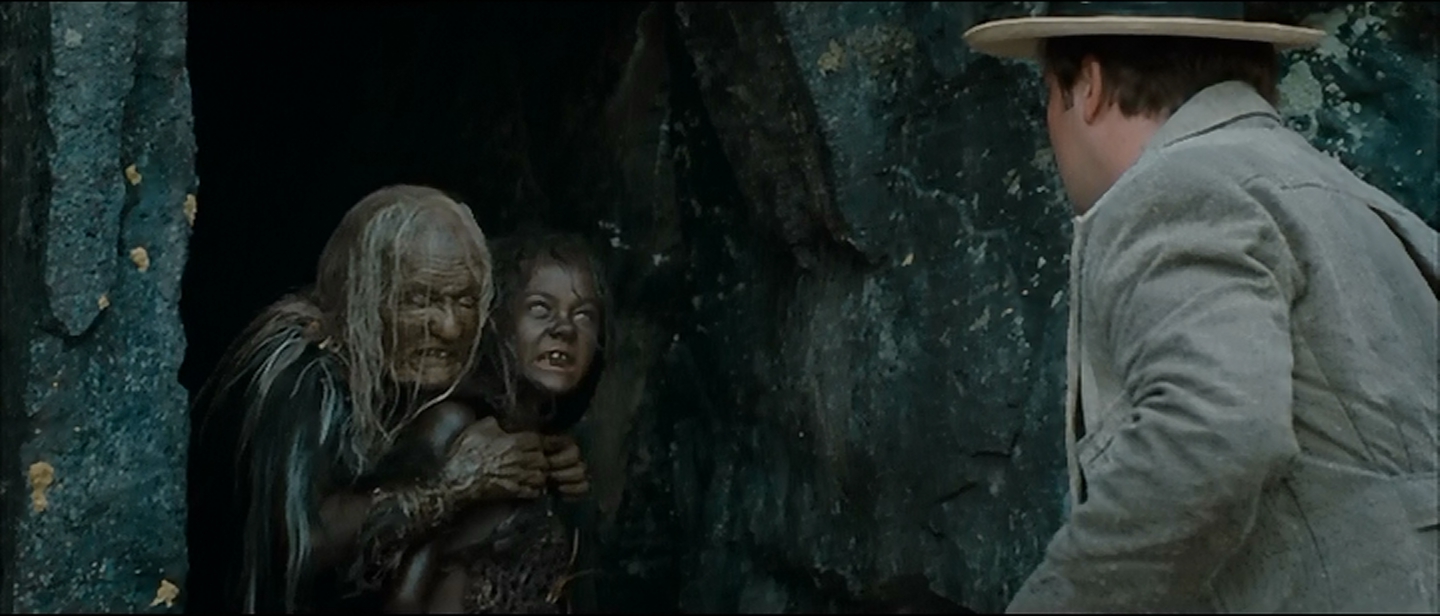
Ann Darrow has only a little more agency than she had in the 1933 film. Her Vaudeville skills entertain and charm Kong, but after that relationship is built, the inevitable Denham captures Kong, and she is then only there to witness to the tragedy of Kong's rampage and death.
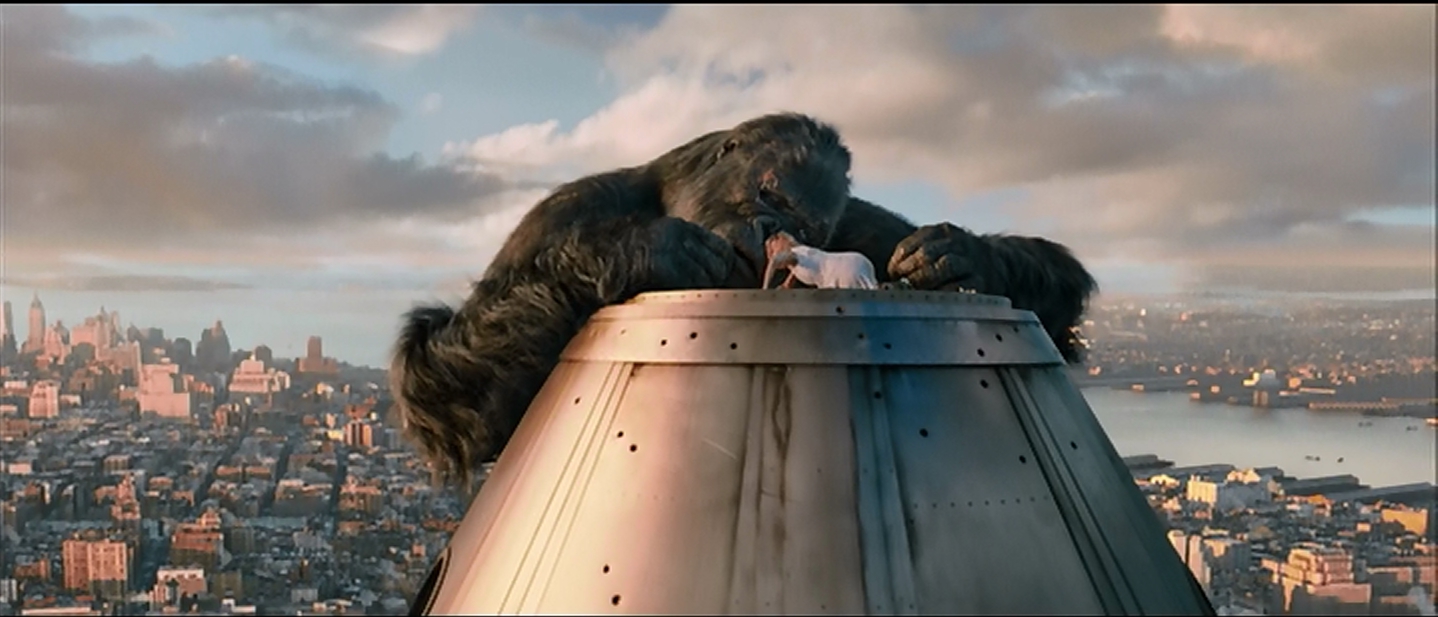
Kong himself doesn't show up until 70 minutes into the film. But he's worth the wait. Jackson's King Kong won an Academy Award for Best Visual Effects, as well as the BAFTA, Saturn, and Las Vegas Film Critics Awards for visual effects, and it's not difficult to see why: Kong himself is incredibly detailed, scarred from many battles. His motion is fluid, his expressions understandable, the virtual sets are very good, and it's all pretty seamless.
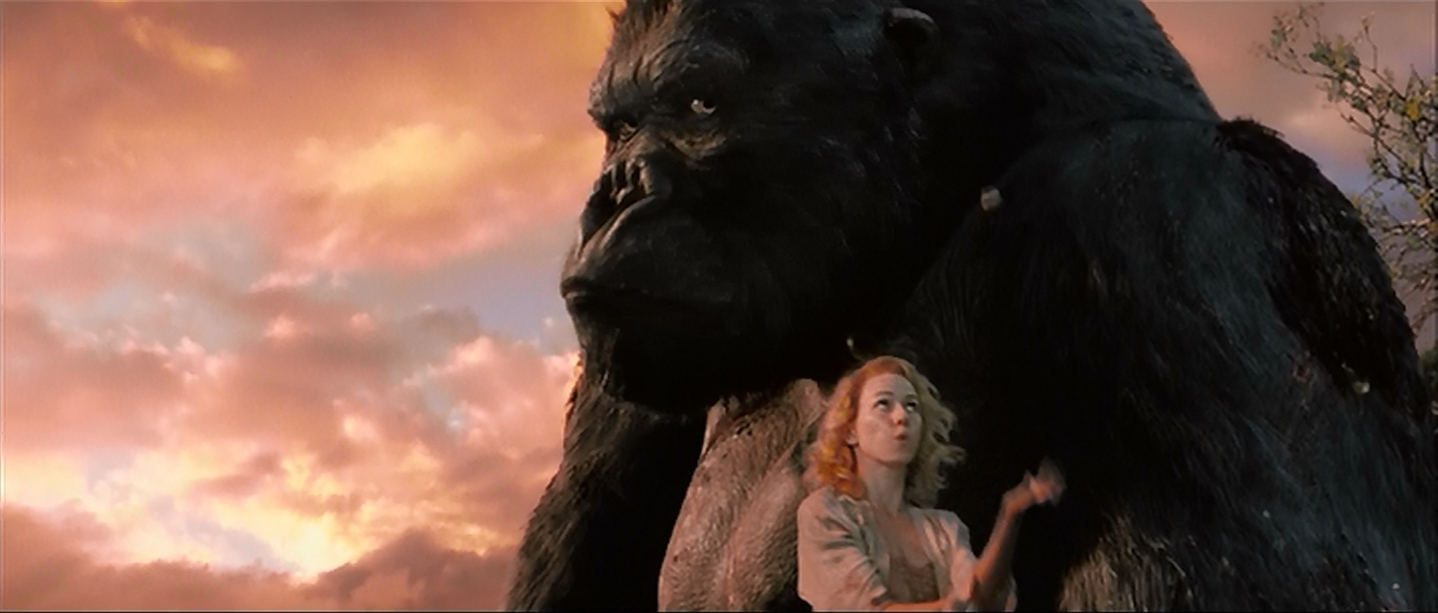
Andy Serkis makes Kong an emotionally accessible creature. The perception of apes has changed a great deal since 1933, and even 1976. Kong never puts a human in his mouth. He is portrayed as an intelligent, emotional creature who can only communicate through body language. The emotional beats that physicality makes is very good. After defeating three dinosaurs, Kong has a moment when he sags, tired from the fight. Free in New York, he has a moment of play on ice, something he's likely never seen before. When Ann tries to cheer him up with juggling, he yawns. If Jackson has learned nothing else about Kong it is this, complexity and inessential action make Kong an understandably and therefore sympathetic character. Where Denham is painted in broad strokes, only obsessing over the film and sleazing his way through life, Kong takes a moment (from the 1933 Kong) to play with the jaw of a defeated enemy.
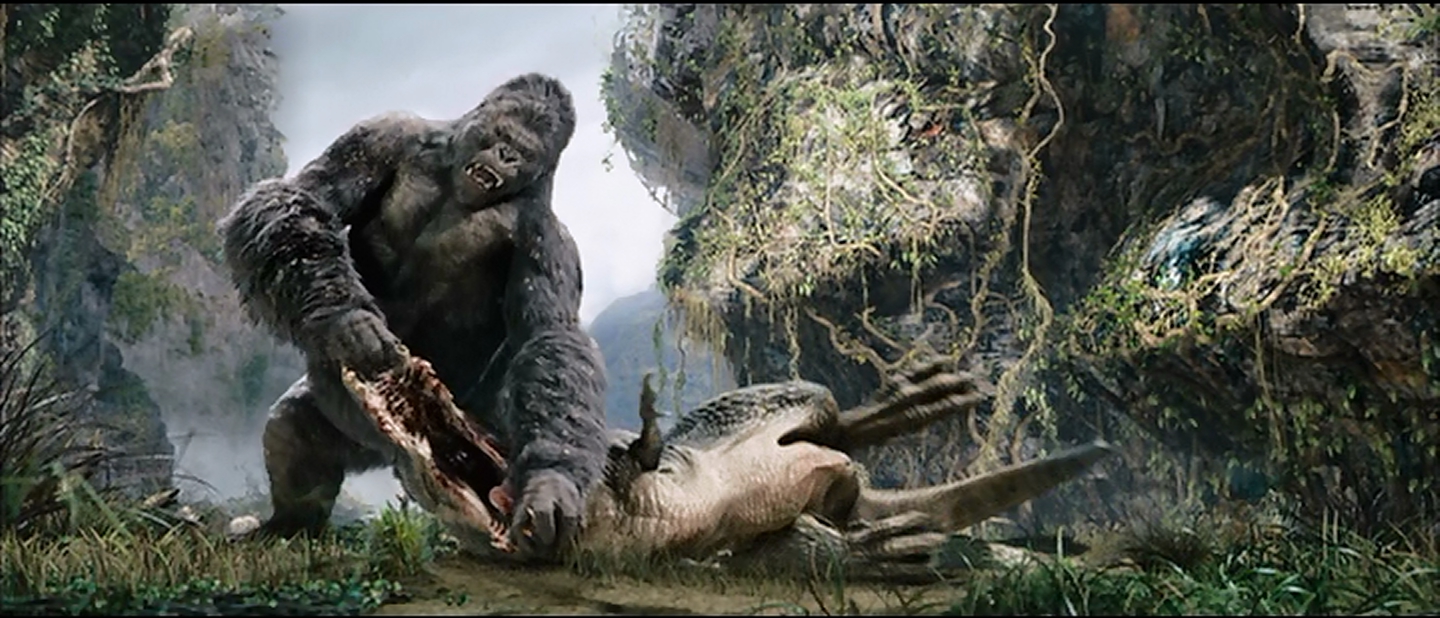
And there are dinosaurs. The middle section of the film owes a great deal to Jurassic Park, men fighting dinosaurs, and Jackson is not shy about whittling away the party to show how dangerous they are. In the original, of course, it was difficult to get humans and dinosaurs into the same shot, let alone interact with each other. With good CGI, it's now pretty easy. Unfortunately, Jackson ladles the dinosaurs on thick. Just having dinosaurs attack isn't enough. He has to have a stampede of sauropods come crushing down a narrow alley towards the humans. It all ends in a gigantic train-wreck pile-up of dinosaurs, having contributed nothing to the plot.
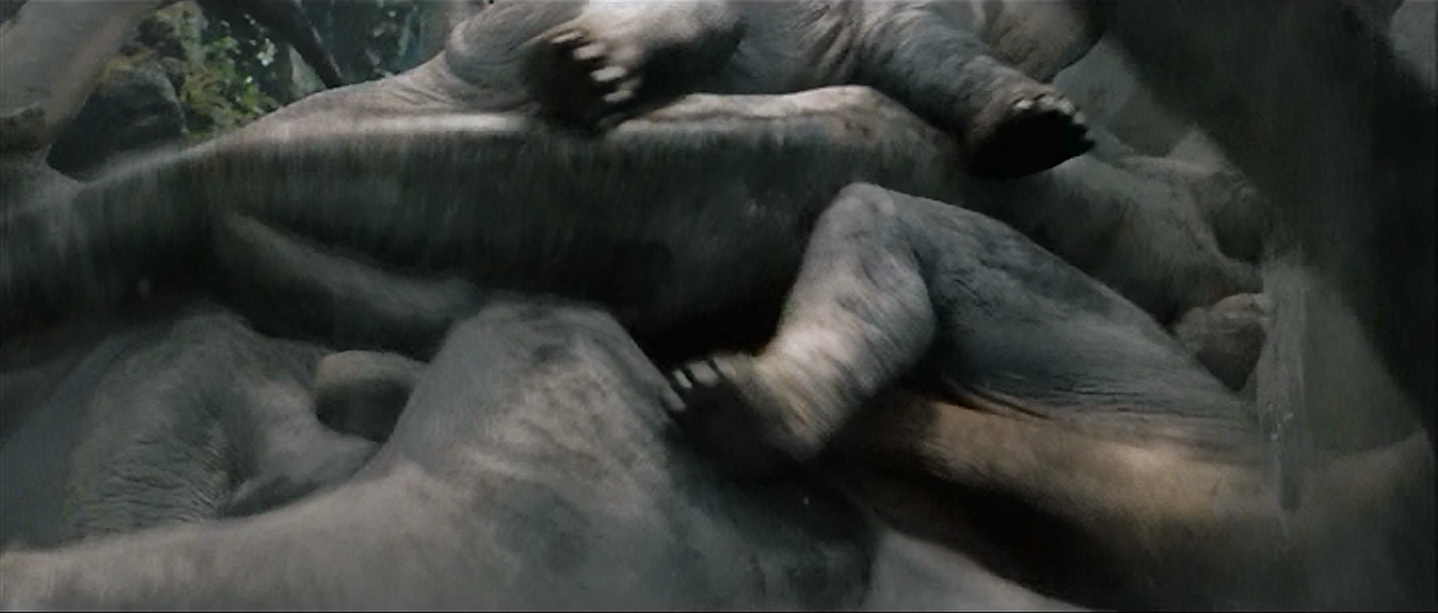
Because this is the second remake, and Kong didn't fight any dinosaurs in the 1976 version, Kong fights three Vastatosaurus rex (which look and feel like a Tyrannosaurus rex). The fight is inventive, partially because Kong has to keep Ann Darrow in one hand and out of danger. But there's a bit of repetition. Where 1933 Kong used the roll and throw once, 2005 Kong uses it three different times.
Jackson of course puts his own spin on the famous log scene, where Kong shakes the tiny humans off a log over an abyss. He also restores the spider-pit scene, a section taken out of the 1933 Kong for being too gruesome. True to his horror roots, he makes it pretty traumatic.
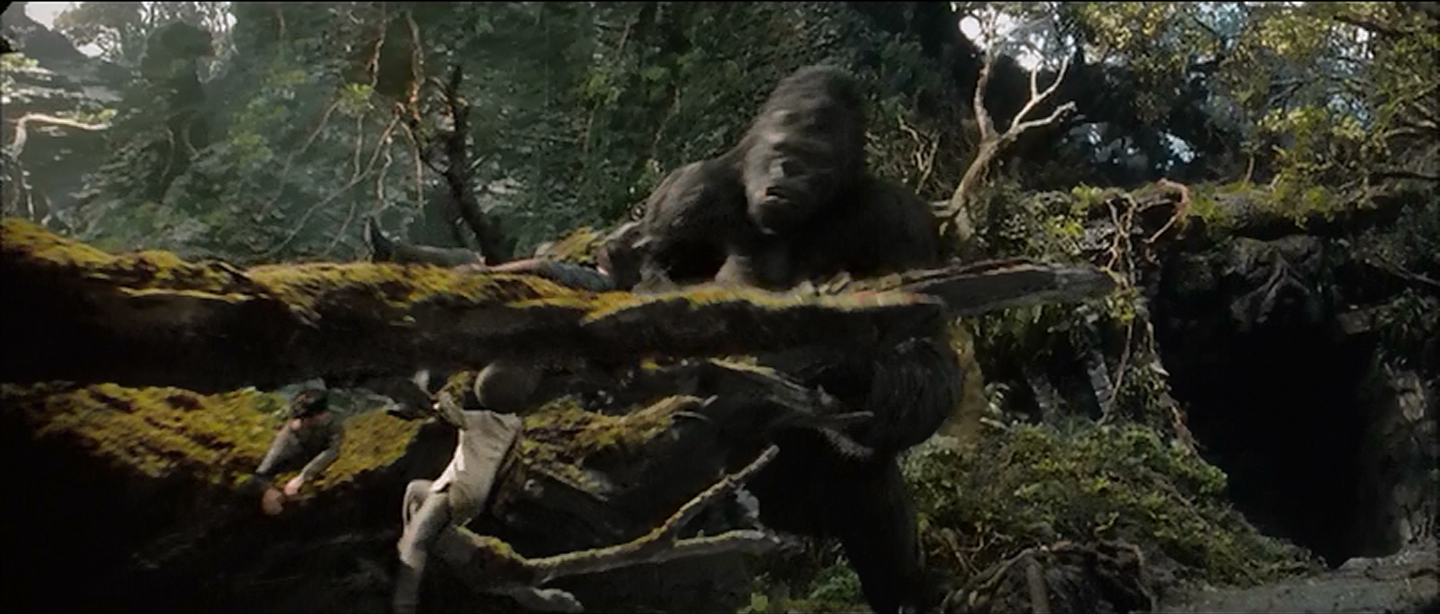
Kong gets his expected rampage across New York, but even New York in the thirties is too large for him to do the sort of damage cinematic descendents Godzilla or Gamera can. Jackson does add a tender moment, as mentioned above. Kong, carrying Ann, runs across a frozen pond in Central Park. After struggling a little, he masters movement on the low-friction surface, and begins to enjoy it. It's a wonderful moment, again, of watching Kong learn. Kong isn't just a dumb brute.
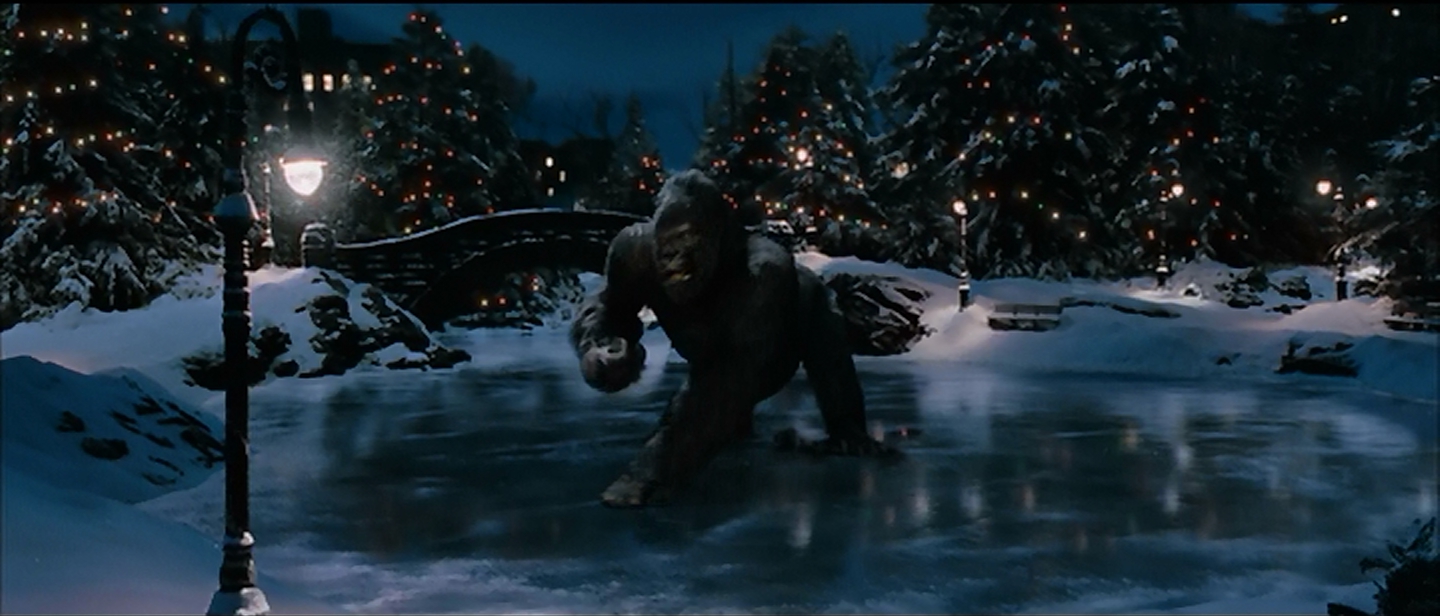
The end is inevitable, (although in the spin-off video game, you can save Kong and get him back to Skull Island). Kong takes Ann to the highest place he can, the Empire State Building. There he is shot to death by planes. Because of his inevitable death by planes, the military is not treated as show, the way it is in the Godzilla franchise. But Jackson in no way valorizes the military. A commander spouting military truisms is crushed as Kong runs past. But the planes get him in the end.
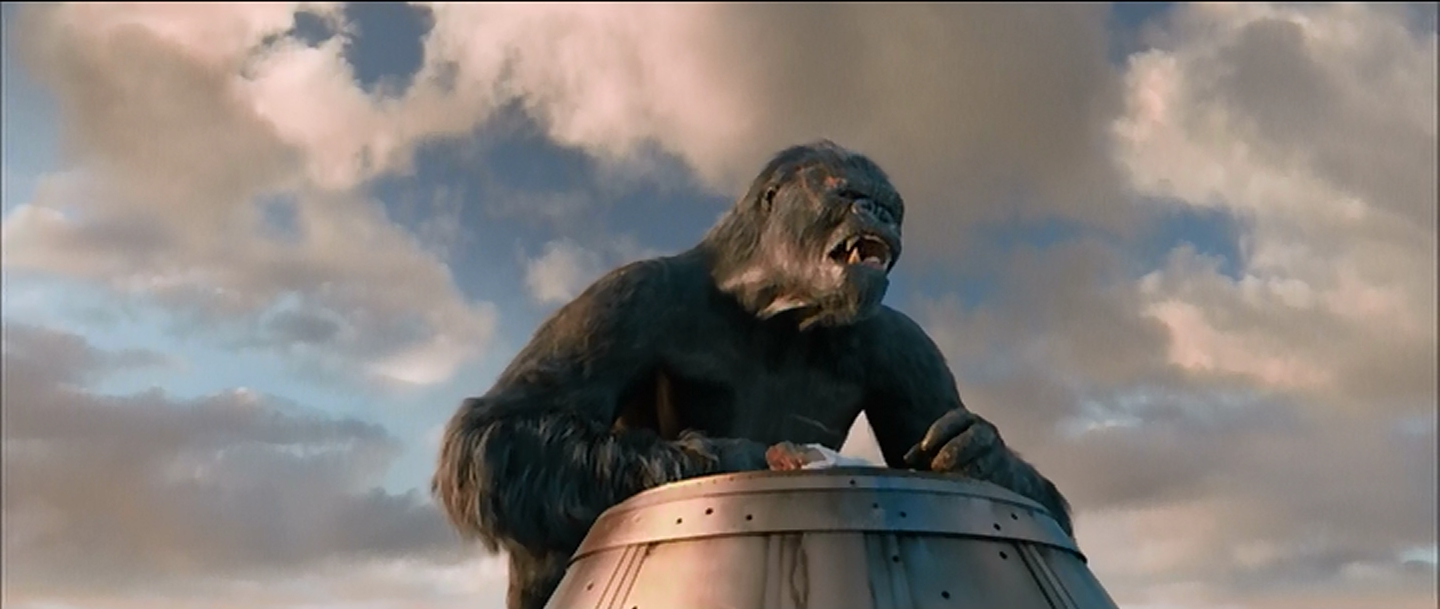
I remember disliking the 2005 Kong when I saw it in the theater. It was bloated, the fights too long, and we spend way too much time with unlikeable Carl Denham. And, unlike most Kaiju films, this one is more a tragedy than an action film or a disaster film. If Peter Jackson goes overboard with the Kong on dinosaur fights, the end of the film is still very affecting. It has an emotional edge that reminds me of Jackson's very real ability to create an emotional moment. He really is good, if in need of the occasional rein in.
5 comments:
I know a very good site where I always watch my films https://putlocker4k.club/ It is just wonderful in every sense and most importantly free, you should take a closer look at it yourself.
I loved this movie does that is a Real character . it’s awesome
i love that Character king kong.Thanks a lot.
Great ppost
I appreciate how this remake expands on Kong’s story while staying true to elements from the original film.
Post a Comment